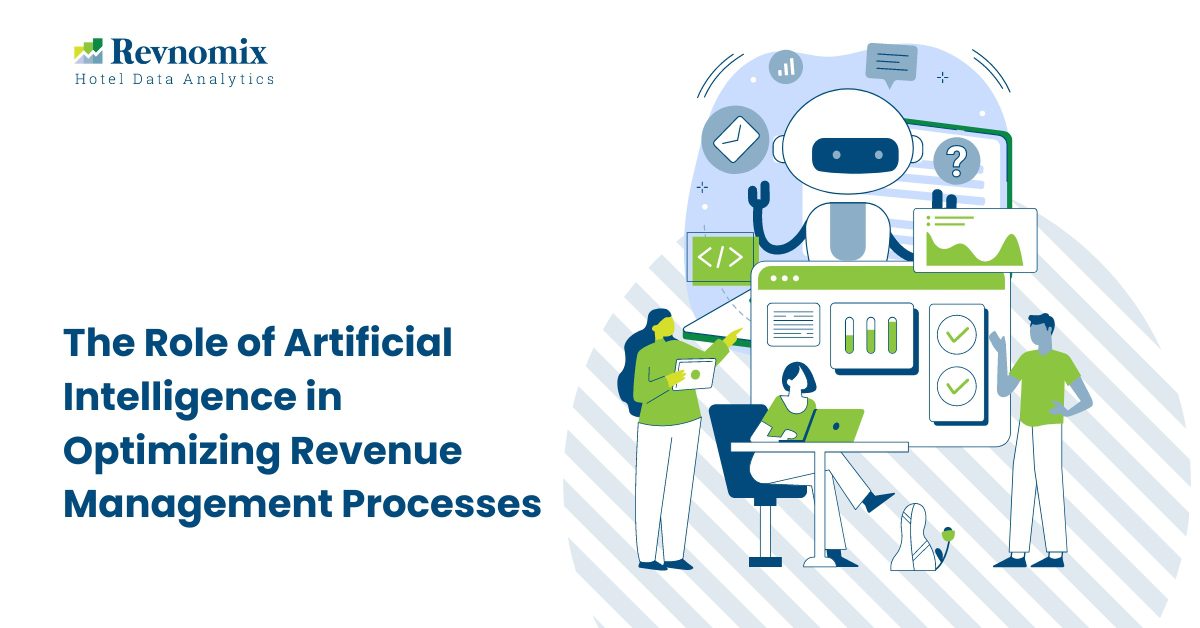Tag Archives: AI in Revenue Management

The Evolution of Revenue Management
Revenue management has undergone a significant transformation in recent years, driven by technological advancements and changing consumer behaviors. Traditionally, revenue management involves setting prices based on historical data and intuition.
However, with the advent of artificial intelligence (AI), businesses now have access to advanced algorithms and predictive analytics tools that can optimize pricing strategies in real time.
Understanding Artificial Intelligence in Revenue Management
Artificial intelligence refers to the simulation of human intelligence processes by machines, particularly computer systems. In the context of revenue management, AI algorithms analyze vast amounts of data to identify patterns, forecast demand, and optimize pricing and inventory decisions.
These algorithms can process data at a scale and speed that surpasses human capabilities, enabling businesses to make more informed and timely decisions.
Elevate Your Hotel Revenue Now
Applications of AI in Revenue Management
In the realm of revenue management, Artificial Intelligence (AI) has emerged as a powerful tool, revolutionizing the way businesses optimize their profits and manage pricing strategies.
Leveraging AI algorithms and advanced data analytics, revenue management systems can process vast amounts of information in real-time, enabling businesses to make informed decisions swiftly and accurately. Below are some key applications of AI in revenue management:
Demand Forecasting: AI algorithms analyze historical data, market trends, and external factors to predict future demand accurately. This enables businesses to adjust pricing strategies and allocate resources efficiently to meet demand fluctuations.
Dynamic Pricing: AI-powered dynamic pricing systems continuously analyze market conditions, competitor pricing, and customer behavior to optimize prices in real time. This ensures that prices are set at the most profitable level while remaining competitive.
Customer Segmentation: AI algorithms segment customers based on various factors such as purchasing behavior, demographics, and preferences. This allows businesses to tailor pricing strategies and promotions to different customer segments, maximizing revenue from each group.
Inventory Management: AI helps businesses optimize inventory levels by predicting demand patterns and identifying the most profitable product mix. This minimizes stockouts and excess inventory, reducing costs and maximizing revenue.
Optimized Distribution Channels: AI analyzes data from various distribution channels to identify the most effective channels for reaching different customer segments. This allows businesses to allocate resources strategically and maximize sales through the most profitable channels.
Personalized Recommendations: AI-powered recommendation engines analyze customer data to provide personalized product recommendations and offers. By presenting relevant products to customers, businesses can increase cross-selling and upselling opportunities, driving additional revenue.
Fraud Detection: AI algorithms detect fraudulent activities and anomalies in transactions, helping businesses minimize revenue loss due to fraudulent transactions.
AI is transforming revenue management by enabling businesses to make data-driven decisions, optimize pricing strategies, and enhance customer experiences, ultimately leading to increased profitability and competitiveness in the market.
Benefits of AI-Driven Revenue Management Systems
AI-driven RMS offer various benefits to businesses, leveraging advanced algorithms and data analytics to optimize pricing strategies and maximize revenue generation. Here are some key advantages:
Enhanced Pricing Strategies: AI algorithms analyze market demand, competitor pricing, and customer behavior to dynamically adjust prices for maximum profitability.
Improved Forecasting Accuracy: By processing vast amounts of historical data and real-time information, AI systems provide more accurate demand forecasts, reducing revenue loss from overstocking or understocking.
Personalized Offerings: AI enables businesses to personalize pricing and promotions based on individual customer preferences and purchase history, leading to increased customer satisfaction and loyalty.
Real-time Insights: With AI-driven analytics, businesses gain real-time insights into market trends, enabling them to quickly adapt pricing strategies to capitalize on emerging opportunities or mitigate risks.
Scalability and Efficiency: Automation of revenue management processes through AI streamlines operations, allowing businesses to handle larger volumes of data and transactions with greater efficiency.
Competitive Advantage: By leveraging AI for revenue management, businesses can stay ahead of competitors by continuously optimizing pricing strategies and maximizing revenue potential.
Overall, AI-driven RMS empower businesses to make data-driven decisions, adapt quickly to market changes, and ultimately drive sustainable revenue growth.
Click here to choose RevnomixRMS
Overcoming Challenges and Implementing AI Solutions
While AI offers tremendous potential for revenue management, implementing AI solutions can be challenging for businesses. One of the main challenges is data quality and availability. AI algorithms require large volumes of high-quality data to generate accurate predictions and recommendations.
Therefore, businesses must invest in data infrastructure and analytics capabilities to ensure that they can effectively leverage AI for revenue management. Additionally, businesses must overcome organizational resistance to change and ensure that employees are adequately trained to use AI tools effectively.
Finally, businesses must address ethical and regulatory considerations associated with AI, such as data privacy and algorithmic bias, to build trust with customers and stakeholders.
Read More – Hotel Revenue Management Outsourcing 2024
The Future of Revenue Management: AI as a Competitive Advantage
Looking ahead, AI is poised to become an indispensable tool for revenue management, providing businesses with a competitive advantage in an increasingly dynamic and competitive marketplace. As AI technology continues to advance, we can expect to see even more sophisticated algorithms and predictive analytics tools that enable businesses to optimize pricing, forecast demand, and personalize offers with unprecedented accuracy and efficiency.
Ultimately, businesses that embrace AI-driven RMS will be better equipped to adapt to changing market conditions, maximize revenue potential, and deliver superior customer experiences in the digital age.